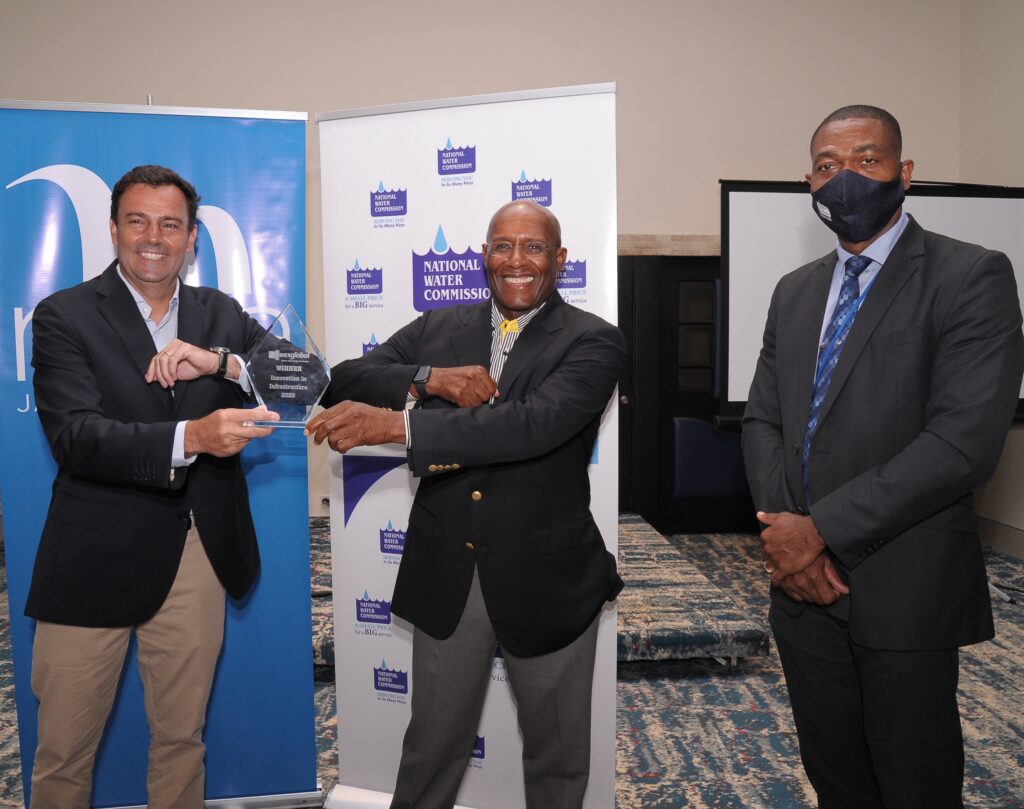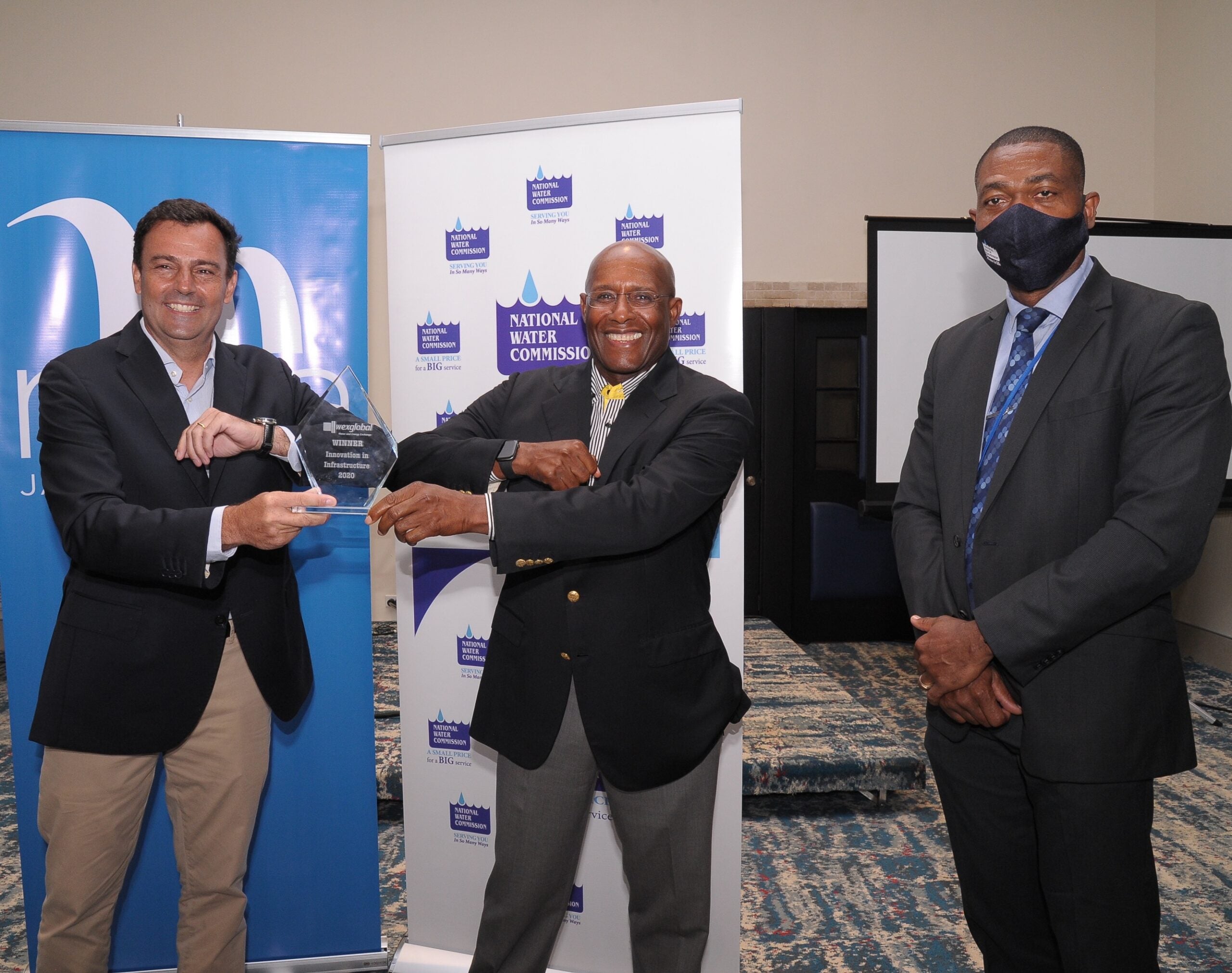With climate change wreaking havoc across the world, and some countries experiencing prolonged drought as a result, there is increased pressure for potable water especially for growing populations. Making sure people have regular access to the precious, lifesaving commodity is a high priority. This is even more critical given the ongoing COVID-19 pandemic which has underscored the need for safe, reliable access to clean water especially for medical, sanitization, and hygiene purposes.
“Water is Life! Every drop counts!” In Jamaica, citizens are routinely encouraged to invest in water harvesting systems, conserve water, report leaks and ensure that they properly regularize their water supplies through the water authorities. The message is slowly but surely getting through with initial promising results.
The Kingston and St Andrew Non-Revenue Water (NRW) reduction co-management program in Jamaica, copped the Water and Energy Exchange (WEX) Innovation for Infrastructure Global Award earlier this year. Managed by the National Water Commission (NWC) and Miya-Jamaica, the program won ahead a short list of countries including Uzbekistan and United Arab Emirates for its highly innovative business model and sustainability component.
According to Mark Barker of WEX “the program which is financed by Inter-American Development Bank (IDB) is a ground- breaking project with fantastic results. The judges underscored the high degree of collaboration that would have been necessary to build trust for it to be effective. It has contributed significantly to knowledge transfer, capacity building, sustainability and resilience.”
He also commended the IDB for its foresight and expressed the hope that the program will be replicated across future IDB water supply improvement projects in the Caribbean.
Programme Impact and Benefits
Kingston and St Andrew is home to over 1.243 million people, representing just under 50% of Jamaica’s population of 2.93 million people. The NRW Reduction Co-management Program is an emblematic operation which received wider recognition of associations of water professionals internationally. It positively impacts communities, by reducing the system input volume and granting a much more efficient water distribution within the network. It boosted the billed water volume from 85 million litres per day (MLD) in 2017 to 92 MLD in June 2020, bringing huge economic benefits by increasing the billed water by US$5.8 million per year to the NWC and Jamaica.
Evan Cayetano, IDB’s Water and Sanitation Senior Specialist in Jamaica notes that the social benefits in Kingston are significant, especially in challenging areas. The program, which entails a full social study, universal metering, and comprehensive customer follow-up, is guaranteeing customer retention for NWC and a sustainable future to the utility.
Cayetano noted that NRW reduction in the system is currently down to 75,500 m3/day from the initial 117 m3/day (which represents a loss 60 % of water input). “We are making steady progress to achieve our final target for YEAR 5/2021 which is approximately 50 MLD or 30% NRW.” he said.
A case study and international benchmark
In observation of World Environment Day, the IDB and NWC also hosted a special webinar to share the case study and international best practice with over 200 stakeholders from the international water community. They included Caribbean utility companies, regulatory authorities, public and private sector interests from across the world from as far afield as Europe.
Therese Turner-Jones, Jamaica Country Representative and General Manager for the Caribbean Group of Countries stated that as “we celebrate World Environment Day and reflect on the intersection between COVID-19 and climate change, water and sanitation is an important policy pillar for sustainability for countries to confront these two beasts.”
The IDB has been working in the water sector of Jamaica for 30 of its 50-year journey in Jamaica. The NWC collaborative aims to improve the reliability and efficiency of water services in the KSA by addressing aged infrastructure and reducing NRW which cripples investment potential.
Mark Barnett, NWC President, commended the IDB for its long-standing support to the Commission. He further shared that “the co-management approach is like a marriage between the NWC and Miya-Jamaica with the NWC President acting as the presiding officer that ensures targets are achieved in the consummation.”
Jermaine G. Jackson, NWC’s NRW Project Manager, added that the NWC selected the co-management approach given the lessons learned from other NRW reduction projects which realized NRW increases after completion and departure of the contractor.
Sergio Campos, IDB’s Divisional Chief for Water and Sanitation noted that the co-management program was a workable one which he highly recommended as it could be easily be customized for other organizations.
Alvaro Ramalho, Miya-Jamaica Country Manager, highlighted the benefits of the training and technology transfer aspects of the program. “For over 4 years, 200 NWC professionals work daily in the system and underwent specialized training programs, including state of the art practices on NRW reduction, namely leak detection and prompt leak repairs, efficient pressure management, meter installation and validation, GIS and asset management.” Miya’s Co-management Team comprises 97% Jamaicans (increasing the pool of Jamaican talent on NRW reduction), with an increasing participation of women, currently representing 20% of the workforce.

Miya Executives proudly collected the award at a gala in Valencia, Spain earlier this year. WEX is an annual global international summit, now in its 15th year and covers the energy, water and circular economy.


Leave a Reply